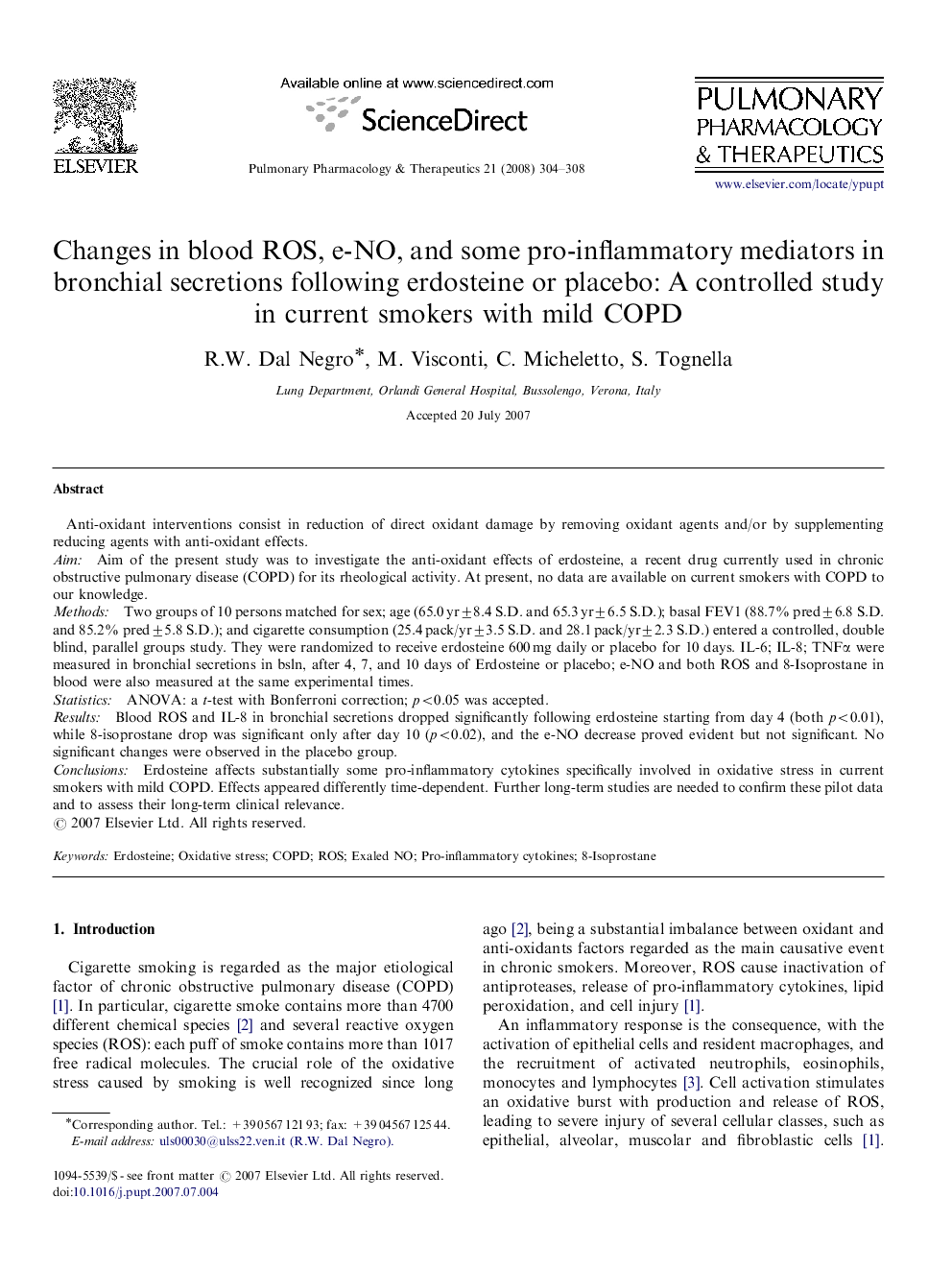| Article ID | Journal | Published Year | Pages | File Type |
|---|---|---|---|---|
| 2567806 | Pulmonary Pharmacology & Therapeutics | 2008 | 5 Pages |
Anti-oxidant interventions consist in reduction of direct oxidant damage by removing oxidant agents and/or by supplementing reducing agents with anti-oxidant effects.AimAim of the present study was to investigate the anti-oxidant effects of erdosteine, a recent drug currently used in chronic obstructive pulmonary disease (COPD) for its rheological activity. At present, no data are available on current smokers with COPD to our knowledge.MethodsTwo groups of 10 persons matched for sex; age (65.0 yr±8.4 S.D. and 65.3 yr±6.5 S.D.); basal FEV1 (88.7% pred±6.8 S.D. and 85.2% pred±5.8 S.D.); and cigarette consumption (25.4 pack/yr±3.5 S.D. and 28.1 pack/yr±2.3 S.D.) entered a controlled, double blind, parallel groups study. They were randomized to receive erdosteine 600 mg daily or placebo for 10 days. IL-6; IL-8; TNFα were measured in bronchial secretions in bsln, after 4, 7, and 10 days of Erdosteine or placebo; e-NO and both ROS and 8-Isoprostane in blood were also measured at the same experimental times.StatisticsANOVA: a t-test with Bonferroni correction; p<0.05 was accepted.ResultsBlood ROS and IL-8 in bronchial secretions dropped significantly following erdosteine starting from day 4 (both p<0.01), while 8-isoprostane drop was significant only after day 10 (p<0.02), and the e-NO decrease proved evident but not significant. No significant changes were observed in the placebo group.ConclusionsErdosteine affects substantially some pro-inflammatory cytokines specifically involved in oxidative stress in current smokers with mild COPD. Effects appeared differently time-dependent. Further long-term studies are needed to confirm these pilot data and to assess their long-term clinical relevance.
